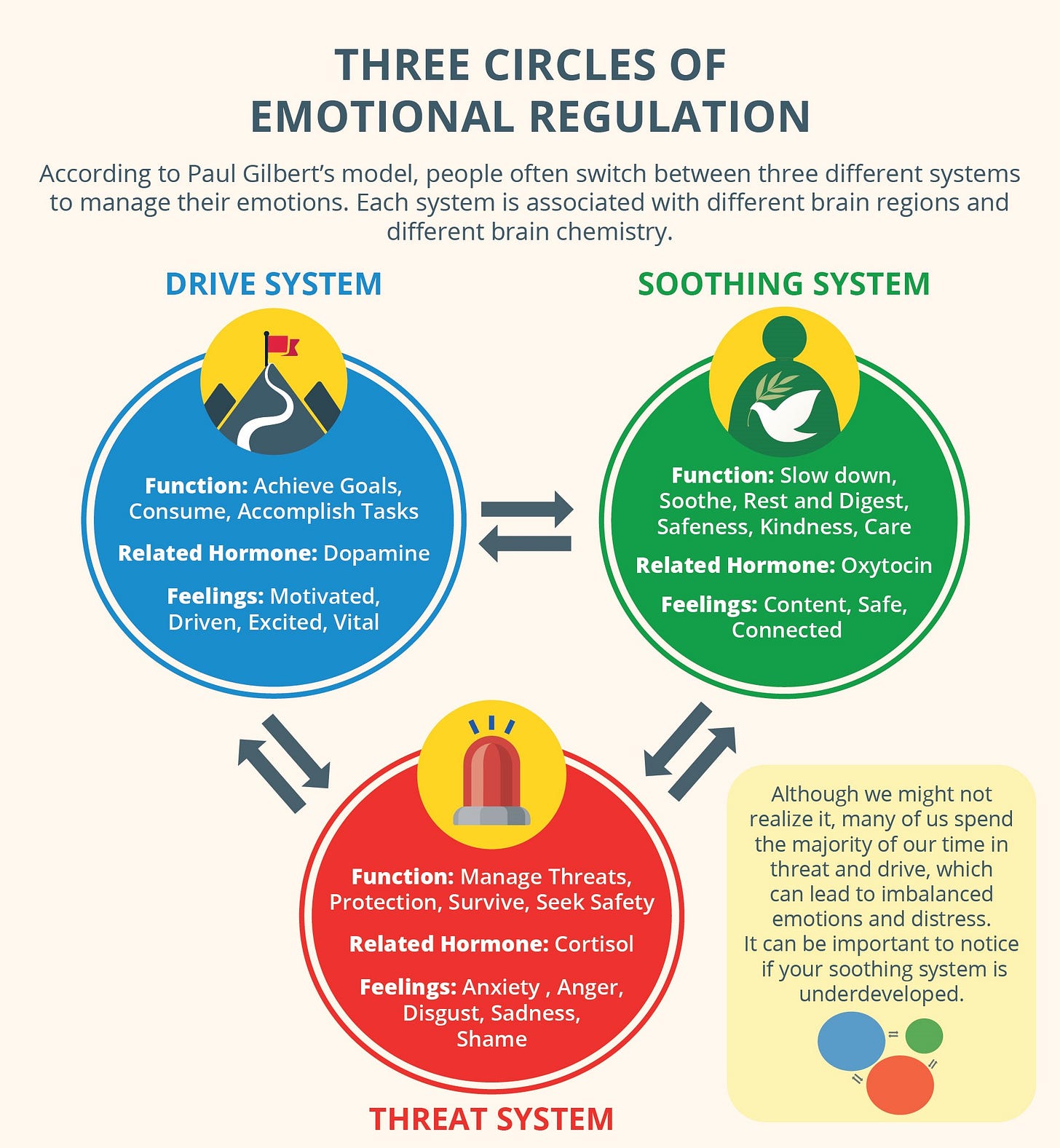Practice what I preach?
Compassion focused therapy and my instinctual response to it as an assistant psychologist (and an individual who needs therapy)
It was a regular Saturday- my one day to laze around, to watch my emotional support TV show, ignore messages from my parents and force myself to stay in bed till 12pm.
Wait- should I maybe start looking at those applications? I shouldn’t waste my time watching Modern Family again.
I started scrolling mindlessly on Instagram.
Why have I not done a Euro trip yet? Is my skin getting better or worse on this new sunscreen? Do I need to start going more regularly to the gym? Aww, *unintelligible baby talk because I saw a dog/cat video*
I started playing Hozier on loop, to get away from my own thoughts.
It was 1pm and I caught myself looking up universities for a PhD while also finding the best way to cure my hormonal acne, all on an empty stomach.
I have been learning and implementing concepts of compassion focused therapy for the patients who get referred to our service. It’s a fascinating take on the biopsychosocial model that looks at three different systems in every individual- the threat, drive and soothe.
I have spent the last three months trying to teach patients to recognise their different systems and work through expanding or shrinking them.
I know today’s been a difficult day, but you have to allow yourself to be kind towards yourself. Let’s come up with a plan, to do one nice thing for yourself today.
Some are very receptive to this and find it easy to implement these changes.
The others are like me.
Research articles like ‘Self-Compassion as a Mediator of Maladaptive Perfectionism and Depressive Symptoms in College Students’ show the disastrous consequences of having perfectionist tendencies without developing tools to express self-compassion while others like ‘‘‘Do You Practice What You Preach?’ A Qualitative Exploration of Therapists' Personal Practice of Compassion Focused Therapy’ tell us how important self-compassion is for a therapist’s personal practice.
But as an only child, born in an Indian family (where all their hopes and dreams are pinned on this five-foot me), we aren’t taught to be self-compassionate. Compassionate? Absolutely. Be kind to every single person around you (even if they don’t deserve it) but
how dare you allow yourself a day off? Or if you’re on leave, shouldn’t you be on a trip somewhere, exploring the world rather than sitting in your room?
It has taken a lot for me to realise and understand how bad my relationship is with myself. Is it ironic or obvious that I want to be in a career that mends others’ relationships with themselves?
I promise to do at least one relaxing thing for myself every Saturday.
References-
Gilbert, P. (2009). Introducing compassion-focused therapy. Advances in Psychiatric Treatment, 15(3), 199–208. https://doi.org/10.1192/apt.bp.107.005264
Mehr, K. E., & Adams, A. C. (2016). Self-Compassion as a Mediator of Maladaptive Perfectionism and Depressive Symptoms in College Students. Journal of College Student Psychotherapy, 30(2), 132–145. https://doi.org/10.1080/87568225.2016.1140991
Gale, C., Schröder, T., & Gilbert, P. (2015). “Do You Practice What You Preach?” A Qualitative Exploration of Therapists’ Personal Practice of Compassion Focused Therapy. Clinical Psychology & Psychotherapy, 24(1), 171–185. https://doi.org/10.1002/cpp.1993
Applying the 3 Circles Model of Emotion to Help Clients Heal Shame. (2019, October 28). NICABM. https://www.nicabm.com/3circles/






See you Saturday, then. 💛
This is beautiful. Thank you Ananya